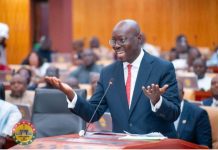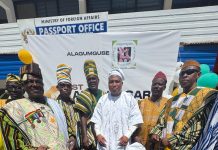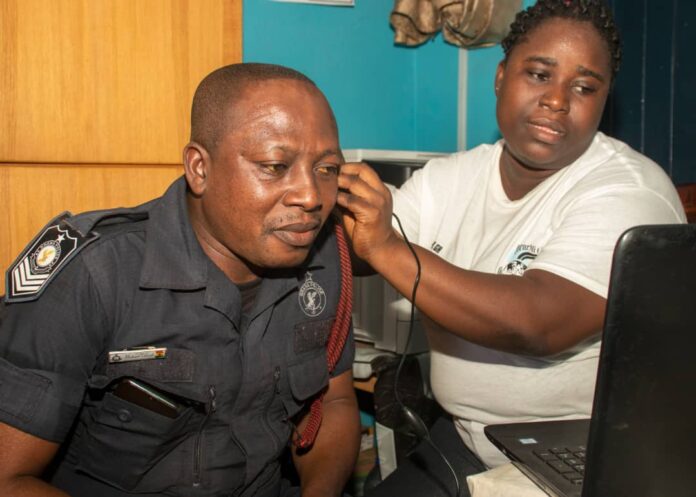Hearing is critical to the efficient performance of service personnel and important for the accurate and rapid processing of speech information.
Service personnel including police officers, military men, customs and preventive servicemen, and prison officers are at high risk of developing Occupational Noise Induced Hearing Loss (NIHL).
Occupational NIHL is the second most common risk factor in the workplace, behind workplace injuries (WHO Europe,2017).
Noise exposure contributes to 22% of workplace-related health issues and is a major cause of hearing loss (safe work Australia, 2010; Manhboubi et al., 2013).
Service personnel work in environments that produces and exposes them to loud sounds usually from ammunitions and guns they fire during the course of their professional duties.
These extremely loud sounds with an intensity usually above 150 dB have a tendency of destroying sensitive structures in the inner ear resulting in sensorineural hearing loss which is permanent and non-reversible.

Occupational NIHL can occur as a result of a one-time exposure to a very loud sound (acoustic trauma) or gradual exposure to loud sounds over a long period of time.
What this means is that service personnel can develop hearing loss during their active service period and or when they retire from work, whichever way, the cause of their hearing loss can be traced to the workplace.
When exposed to these loud sounds, the individual experiences reduced hearing and tinnitus (ringing sensations in the ear which is either pulsatile, buzzing, hissing or roaring in nature) which may or not resolve briefly and spontaneously, they may feel heaviness in the ears etc.
According to international practice, service personnel is supposed to protect their ears with hearing protective equipment like ear muffs and ear plugs when exposed to loud sounds to prevent hearing loss.
The standard also requires that they undergo periodic audiological evaluation at least once annually but the reverse is the norm in Ghana. Our check reveals that government rarely complies with these standards.
HearMi Ghana a nongovernmental organization (NGO) that focuses on reducing the incidence of hearing loss in Ghana organized ear and hearing screening for Akatsi and Abor police officers in the Akatsi South and Keta Districts of Ghana respectfully.
The group donated earplugs; a hearing protective equipment to the police officers. A member of the group, Mr. Kplorla Ahiawortor an audiologist demonstrated how to fix the earplugs into the ears properly.
The founder of HearMi Ghana Mr. William Hodzi entreated the police officers to take their ear and hearing health seriously and always ensure that they fix the earplugs in their ears when deployed to duties that may likely result in the use of guns that emits loud sounds to prevent possible hearing loss.
At the end of the screening exercise, the group recorded police officers with several degrees of hearing loss caused by foreign body in the ear specifically cotton from q-tips stuck in the ear, wax or cerumen impaction, otomycosis (fungal infection of the ear), otitis media (middle ear infection) which were all managed instantly. Those with sensorineural hearing loss were referred to the hospital for further management.
Mr. William Hodzi made a passionate appeal to the government to engage key stakeholders like HearMi Ghana and others to formulate and implement a policy guideline that;
Ensures that Government Provides service personnel with ear protective equipment i.e. ear muffs and ear plugs that mask or reduce the intensity of sounds produced at the workplace hence decreasing their chances of losing their sense of hearing.
Ensures that service personnel undergoes extensive audiological evaluation at least once every year for early detection and prompt management of hearing loss.
Ensures that officers that develop a permanent hearing loss in the course of duty as a result of exposure to loud sounds from the workplace are duly compensated and assisted with their ear and hearing health management.
This he said is the surest way to mitigate the high risk of service personnel developing hearing loss during active service and or when they retire from service.












































